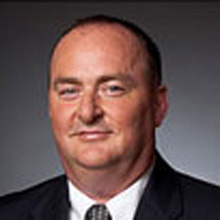“Of course, there’s a different law for the rich and the poor: otherwise, who would go into business?” says a character in novelist Christina Stead’s classic House of All Nations, a cutting portrait of Depression-era capitalism.
To judge by state government’s actions, a principal tenet of the “law” for the rich is that there are few undeserving rich. And a chief tenet of the law for the poor is that there are many undeserving poor.
These laws are sometimes broken. The rich still pay taxes. But in Maine in recent years their income taxes have been reduced, and the poorest pay proportionally more of their income in total state taxes. There are enormous tax breaks for rich people and the big corporations they own. In other words, they get a lot of state assistance.
The below-poverty-level poor and what we call the working poor — by some Census Bureau calculations, they together comprise half the American population — also get state assistance, often combined with federal and municipal help. The assistance includes Medicaid, the federal-state health insurance for low-income people (a/k/a MaineCare), and special help for the unemployed, the elderly, the disabled, and needy kids.
Nevertheless, that different laws for the rich and poor continue to be enforced is seen in the simple fact that, while the American economy has more than doubled in wealth in the past 30 years, median household income hasn’t improved, as Maine economist Charles Colgan recently pointed out. Where did the increase in wealth go? Do the math: it went to the top.
Here are recent Maine examples of how the two laws work. The first is about — so to speak — the deserving rich, the second about the undeserving poor. As you read this, think about whom you would rather give your tax money to.
The deserving rich: Cate Street Capital

John R. Hallé, President/CEO of Cate Street
Capital. “Mr. Hallé founded Cate Street
Capital in 2009, after more than 25 years of
successful financial development with several
entrepreneurial, high-growth financial
companies.” (Photos and blurbs from the
company’s website.) 
Richard M. Cyr, Cate Street’s Chief Marketing
Officer. “Over his 26 years in business, Mr. Cyr
has successfully built and managed several
companies, including Cyr and Knowles
marketing and advertising agency, which
was consistently ranked in the top 1 percent
of most profitable agencies nationwide.”
|
Prodded at a September meeting by Republican Governor Paul LePage — in person — the Finance Authority of Maine (FAME) board voted on October 17 to guarantee repayment of $25 million that Cate Street Capital, of Portsmouth, New Hampshire, will borrow to construct a $70-million “torrefied wood” pellet plant in the once-prosperous, now-poor, northern-Maine community of Millinocket. FAME will issue bonds to raise the money from a bank.FAME is a state agency that promotes business development through loans and investments; it also manages student financial aid. Cate Street Capital is a business developer with about 90 investors.
The Millinocket plant will be run by a Cate Street start-up, Thermogen, at the defunct Great Northern Paper mill, which Cate Street owns and is taking apart and selling for scrap. Thermogen expects to employ 36 workers, plus others indirectly such as contractors supplying the plant with waste wood.